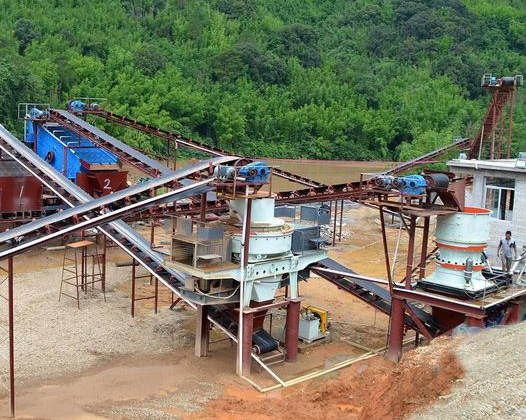A 300 tons per hour (TPH) river stone crushing plant is a medium-to-large scale crushing system designed to process river stones into aggregates for construction, road building, and other industrial applications. River stones are naturally smooth and round, which often requires special crushing equipment to break them efficiently into usable sizes.
If you’re considering investing in a 300 TPH river stone crushing plant, understanding the costs involved is essential for budgeting and planning. This article will provide an overview of the typical costs and factors influencing the total investment.

What Does a 300 TPH River Stone Crushing Plant Include?
Before diving into the cost, it’s important to understand what equipment and infrastructure are included in a crushing plant of this capacity. Typically, a 300 TPH river stone crushing plant includes:
-
Feeding system: Vibrating feeder to evenly feed the raw river stones.
-
Primary crusher: Usually a jaw crusher or impact crusher to reduce large stones.
-
Secondary crusher: Often a cone crusher or impact crusher for finer crushing.
-
Screening equipment: Vibrating screens to separate stones by size.
-
Conveying system: Belt conveyors to transport materials between crushers and screens.
-
Dust control: Dust collectors or spray systems to reduce environmental impact.
-
Control system: Centralized control panel for plant operations.
Factors Influencing the Cost of a 300 TPH River Stone Crushing Plant
-
Equipment Quality and Brand:
High-quality brands with better technology and durability usually cost more upfront but reduce downtime and maintenance expenses. -
Type of Crushers Used:
Jaw crushers are generally cheaper but less efficient for rounded stones compared to impact or cone crushers. The choice of crusher impacts price. -
Automation Level:
Plants with advanced automation and control systems cost more initially but save labor and improve safety. -
Installation and Transportation:
Depending on the plant location, transportation of equipment and installation labor can significantly affect cost. -
Environmental Compliance:
Dust suppression systems, noise reduction, and other environmental protections may add to the cost. -
Local Labor and Land Costs:
Labor costs for construction and operation, as well as land acquisition or leasing, vary by region.
Estimated Cost Breakdown for a 300 TPH River Stone Crushing Plant
| Cost Item | Estimated Cost Range (USD) |
|---|---|
| Primary Crusher (Jaw/Impact) | $50,000 – $100,000 |
| Secondary Crusher (Cone/Impact) | $40,000 – $80,000 |
| Vibrating Feeder | $8,000 – $15,000 |
| Vibrating Screen | $15,000 – $30,000 |
| Belt Conveyors | $15,000 – $30,000 |
| Dust Control System | $5,000 – $15,000 |
| Control System | $5,000 – $10,000 |
| Installation & Transportation | $20,000 – $50,000 |
| Miscellaneous (Foundation, Wiring, etc.) | $10,000 – $20,000 |
Total Estimated Cost: Approximately $168,000 to $350,000 or more.
Additional Cost Considerations
-
Operating Costs: Power consumption, maintenance, and labor add ongoing expenses.
-
Spare Parts: Regular replacement parts can cost several thousand dollars per year.
-
Permits and Licenses: Legal permits for mining and crushing can affect timelines and costs.
-
Customization: Adding specialized equipment like washing units or additional screening may increase the price.
Tips to Optimize Your Crushing Plant Investment
-
Evaluate your raw material: River stones often require impact crushers for better efficiency due to their round shape.
-
Choose a reliable supplier: Look for suppliers with good after-sales support and spare parts availability.
-
Plan for scalability: Consider modular plants that can be expanded as your business grows.
-
Invest in automation: It reduces labor costs and improves safety.
-
Consider environmental impact: Proper dust control avoids fines and improves working conditions.
A 300 TPH river stone crushing plant is a significant investment that typically ranges between $170,000 to $350,000 depending on equipment, location, and customization. Proper planning, equipment selection, and supplier choice are crucial to ensure you get the best value and operational efficiency from your crushing plant.
If you are planning to set up a river stone crushing plant, it is recommended to request detailed quotes from multiple manufacturers and evaluate the total cost of ownership including installation, maintenance, and operating expenses.
